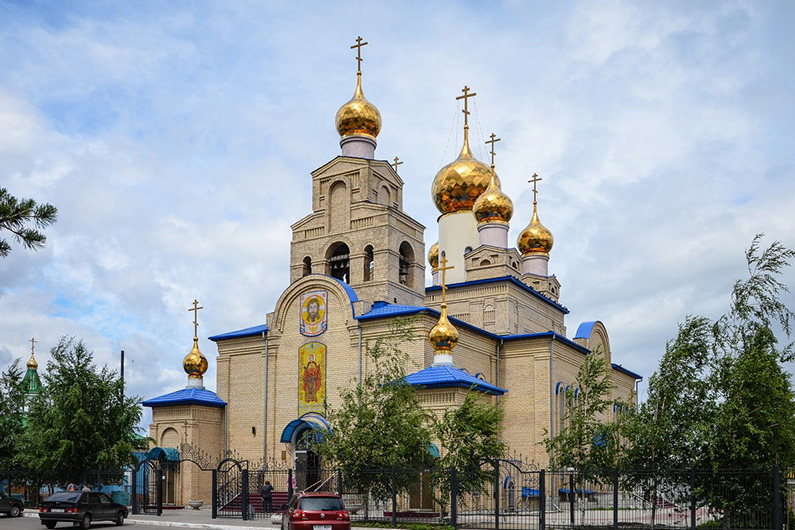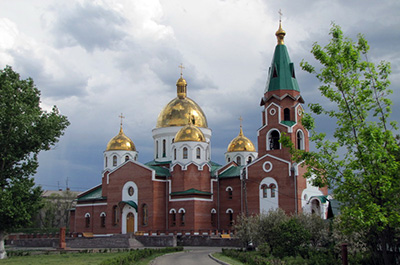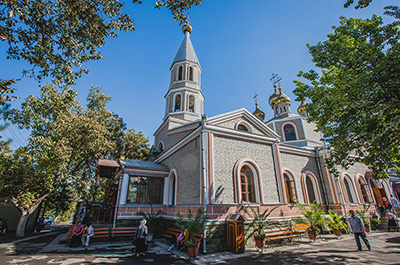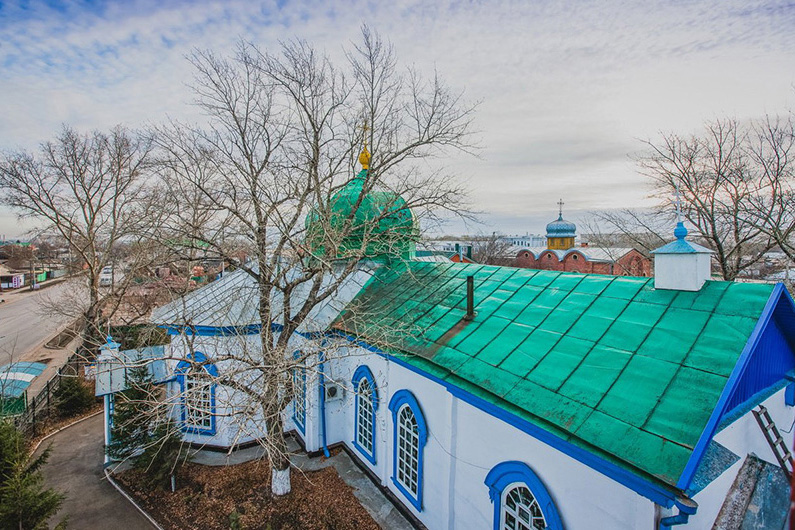
The head of the Orthodox Church of Kazakhstan honored the memory of the first Patriarchal Exarch of All Belarus, Metropolitan Filaret (Vakhromeyev)
- 06.08.2024, 22:57
- Новости на английском языке

August 5, 2024. Belarus. Following the Divine Liturgy in the main church of the Assumption Zhirovichi Monastery, Metropolitan Alexander of Astana and Kazakhstan visited the burial place of the first Patriarchal Exarch of All Belarus, Metropolitan Filaret (Vakhromeyev), and celebrated the funeral litiya for the ever-memorable archpastor.
Praying at the service together with the Head of the Orthodox Church of Kazakhstan were: the abbot of the Zhirovichi Assumption Monastery, honorary trustee of the Minsk Theological Seminary, Archbishop Guriy of Novogrudok and Slonim; Archbishop Amfilohiy of Ust-Kamenogorsk and Semipalatinsk; Bishop Avksentiy of Nesvizh, vicar of the Patriarchal Exarch of All Belarus; rector of the Minsk Theological Seminary, Archpriest Viktor Vasilevich; employees of departments and commissions of the Kazakhstan Metropolitan District headed by O.N. Ovchinnikov, Honored Artist of Russia.
At the end of the litiya, Metropolitan Alexander laid flowers on the grave of the hierarch, after which the congregation sang eternal memory.
By 1978, when Metropolitan Filaret headed the Minsk and Belarusian Diocese, the believers of the BSSR had lost hundreds of churches, seminaries, monasteries and pastoral care. In Minsk, services were held in only two churches, and the only monastery in the country was in Zhirovichi. The main concern of the bishop and his associates was the revival of Orthodoxy in White Rus' and tireless work to open and organize parishes, renew monastic life, provide spiritual education for clergy and church ministers, and educate the laity.
The result of these efforts was the establishment of the Belarusian Exarchate in 1989, granting it administrative independence and its own governance by the Synod headed by the Patriarchal Exarch. During the 35-year period of Metropolitan Filaret's tenure as head of the Belarusian Exarchate, 24 women's and 10 men's monasteries were opened, the number of Orthodox parishes increased several times, hundreds of new ones were built and many destroyed churches and church buildings were restored.
The Belarusian Orthodox Church glorified many locally venerated saints, established the celebration of the Council of Belarusian Saints (later it included the names of 14 more saints of God who labored on Belarusian soil) and the Council of New Martyrs and Confessors of the Belarusian Land.
The spiritual upsurge was facilitated by the revival of the Minsk Theological Seminary and the opening of the Minsk Theological Academy. Theological schools appeared in Minsk, Slonim and Orsha, the School of Bell Ringers at the Minsk Diocesan Administration and the School of Catechists of the Minsk Diocese. A seminary was opened in Vitebsk and a theological faculty was established, which was eventually transformed into the Institute of Theology of the Belarusian State University.
A tradition was established of holding annual forums and conferences with the participation of theologians, creative and scientific intellectuals, religious figures from near and far abroad, as well as representatives of government agencies.
Metropolitan Filaret took an active part in the development of the draft Law of the Republic of Belarus "On Freedom of Conscience and Religious Organizations", the new version of the Law included a formulation about the decisive role of the Orthodox Church in the development of spiritual, state and cultural traditions of the Belarusian people.
The cooperation agreement between the Republic of Belarus and the Belarusian Orthodox Church concluded in 2003 laid the foundation for church-state relations in Belarus and had no analogues in the post-Soviet space; on its basis, agreements have been concluded and cooperation programs have been signed in recent decades.
You can read more about the life and work of the archpastor here.





















